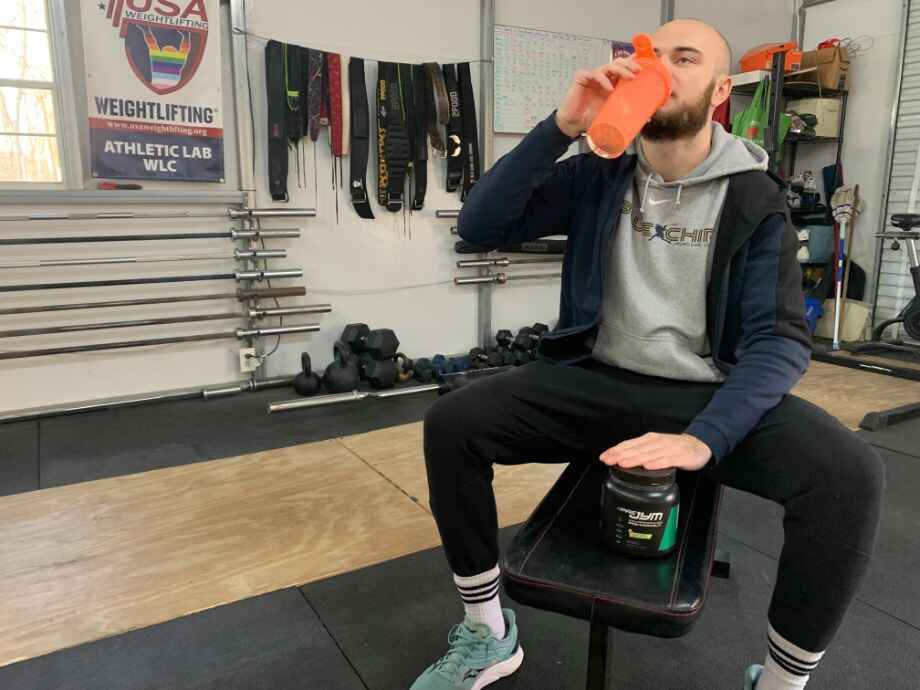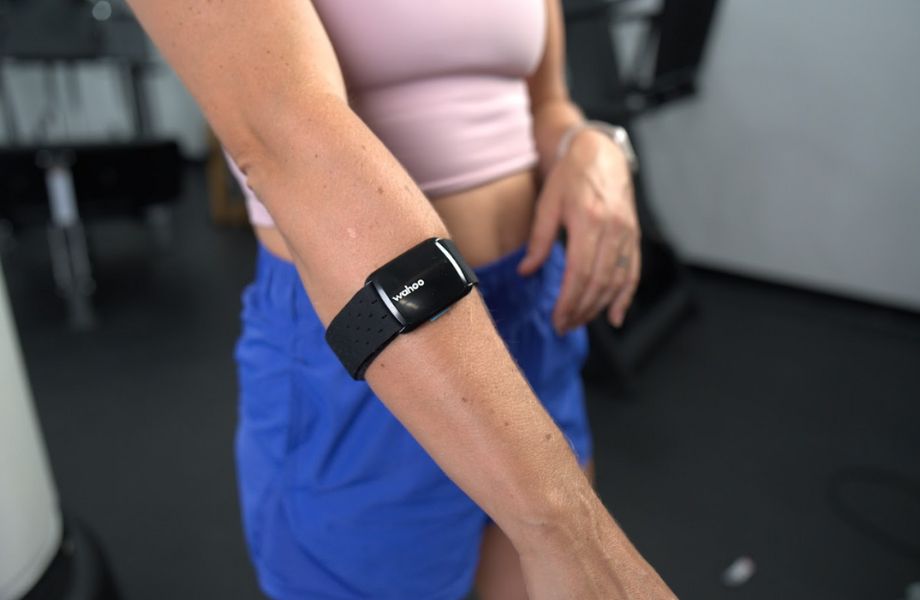When it comes to taking a pre-workout supplement, timing matters. Take it too early, and the benefits may wear off long before your workout, but take it as you step into the gym, and you won’t feel its effects until halfway through your training session. One important question that must be answered to know when to take this supplement is: How long does pre-workout last?
There are tons of pre-workout products on the market today, all containing various ingredients in different amounts. However, the main ingredients typically include caffeine, arginine, or citrulline. Fortunately, we know enough about these ingredients to provide evidence-based information regarding when to take pre-workout and how long it lasts.
Keep reading to learn more about the benefits, timing, and side effects associated with taking a pre-workout supplement, so you can power through your workout full of energy and focus.
Medical disclaimer: This article is intended for educational and informational purposes only. It is not intended as a substitute for medical advice. For health advice, contact a licensed healthcare provider.
How Long Does Pre-Workout Last?
How long a pre-workout supplement lasts depends on the product’s ingredients. Little is known about the optimal consumption time frame for most ingredients commonly used in pre-workout. However, substantial evidence offers insight into how long pre-workout may last based on three common ingredients: caffeine, arginine, and citrulline.
Caffeine, a natural stimulant, is rapidly absorbed and typically peaks in the bloodstream within 45-60 minutes following ingestion. Caffeine has a relatively long half-life of 3-7 hours, and you may feel its effects for up to 10 hours1. If you’d rather avoid the caffeine crash, consider stim-free pre-workout supplements.
Citrulline and arginine are both amino acids involved in the synthesis of nitric oxide (more on this later!). Arginine peaks in the bloodstream between 60-90 minutes after consumption and gradually loses its effects 30-120 minutes later, depending on the dosage2.
Citrulline malate has been shown to peak around 1 hour after ingestion and quickly declines 15-30 minutes later, regardless of the amount3.
Everyone has a different tolerance for caffeine, arginine, and citrulline and some may feel their effects for longer than others. Given the information we know about these ingredients, the effects of pre-workout lasts between 30 minutes and 2 hours.
What is Pre-Workout?
So, what’s all the buzz about pre-workout and why is timing so important? Pre-workout is a nutrition supplement designed to help you power through your workouts. The ingredients in pre-workout are thought to boost energy levels, enhance muscle endurance and muscle mass, and amplify focus.
RELATED: Best Pre-Workout Ingredients
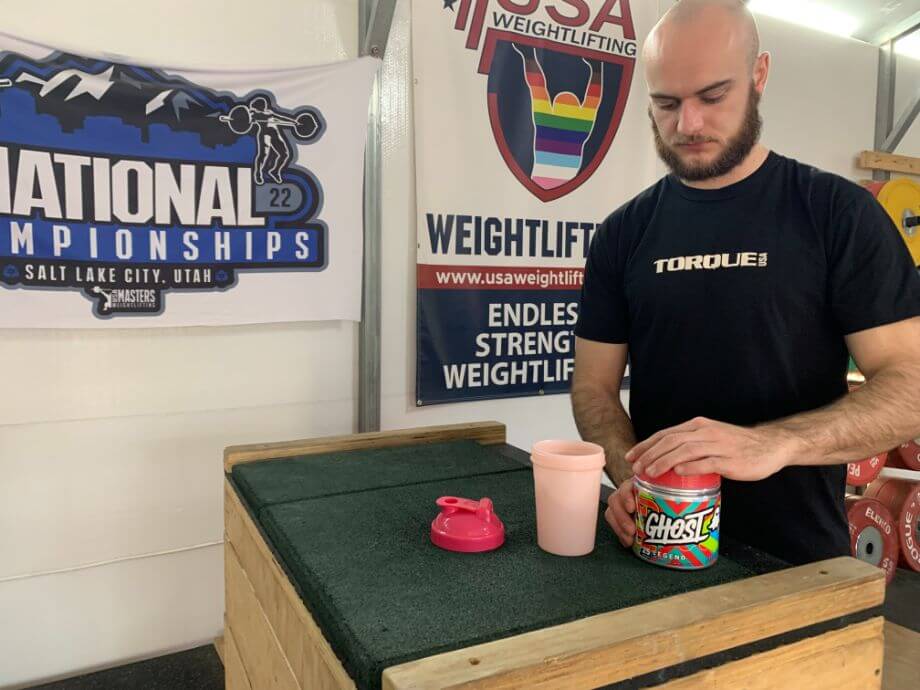
Pre-workout supplements are made with a diverse range of active ingredients depending on the specific product, but we will focus on several of the most common ingredients here.
Caffeine
Caffeine is a stimulant shown to enhance various aspects of exercise, such as muscular endurance, muscular strength, sprinting, and jumping. In addition to physical performance, caffeine intake offers cognitive benefits like heightened attention and vigilance4.
Furthermore, caffeine effectively improves exercise performance in trained and untrained athletes. However, regardless of your training experience, consuming too much caffeine can be harmful. The Food and Drug Administration (FDA) recommends consuming no more than 400 milligrams of caffeine daily to avoid negative side effects1.
Arginine
Arginine is an amino acid required for the synthesis of nitric oxide, a signaling molecule that expands blood vessels and increases blood flow to the muscles. Nitric oxide has been shown to improve anaerobic and aerobic physical performance2.
Although arginine is still commonly included in pre-workout, the dosage needed to increase arginine plasma levels is difficult for the intestines to absorb, often resulting in gastrointestinal distress. Arginine is also utilized for hepatic metabolism. This reduces its availability in the bloodstream needed to convert to nitric oxide.
Citrulline
Citrulline, another amino acid, makes up for where supplemental arginine may be lacking. Citrulline, unlike arginine, bypasses hepatic metabolism and converts to arginine in the kidneys. Supplementing with citrulline results in greater blood plasma levels of arginine than when arginine is supplemented directly, leaving more arginine available to make nitric oxide5.
There are two forms of citrulline: l-citrulline and citrulline malate. Both convert to nitric oxide for improved blood flow and oxygen delivery to the muscles, but citrulline malate takes the cake.
Citrulline malate is the combination of l-citrulline and malic acid, which is thought to boost absorption rates. One randomized control trial5 showed that advanced resistance-trained males who took 8 grams of citrulline malate performed significantly more repetitions of multiple lower-body resistance exercises when compared to the placebo group.
Another study6 showed that men who took 8 grams of citrulline malate 1 hour before performing upper-body resistance exercises completed 53% more repetitions than those in the placebo group. They also reported a significant decrease in muscle soreness at 24 and 48 hours post-workout.
L-Theanine
L-theanine, another amino acid, is included in many pre-workout supplements for its ability to boost the cognitive benefits of caffeine. Recent research7 suggests that caffeine and l-theanine combined can enhance attention, alertness, and overall cognition. You can thank l-theanine for the laser-sharp focus you feel after taking pre-workout.
Beta-Alanine
Beta-alanine is known to improve muscle endurance, reduce muscle fatigue, and promote muscle growth. With those benefits, it’s no wonder beta-alanine is found in most well-known pre-workout supplements used by bodybuilders and weight lifters.
Furthermore, beta-alanine supplementation increases muscle carnosine concentration, bolstering exercise capacity and performance. Carnosine is abundant in skeletal muscle and is thought to play an important role during exercise due to its ability to help regulate intracellular pH8.
Side note: Beta-alanine is the culprit of the tingling sensation some feel in their hands and arms after taking pre-workout—don’t worry, it’s only temporary!
Creatine
Creatine is used to enhance energy production by aiding in the formation of ATP. ATP is the molecule your cells use for energy. Creatine helps your body produce more ATP during exercise, improving explosiveness and power. In fact, several studies9 show that creatine supplements enhance force output, augment power output, and increase strength.
RELATED: Best Creatine
Benefits of Pre-Workout
Taking pre-workout before exercising could improve athletic performance, increase energy, and sharpen focus. Let’s explore these benefits in further detail.
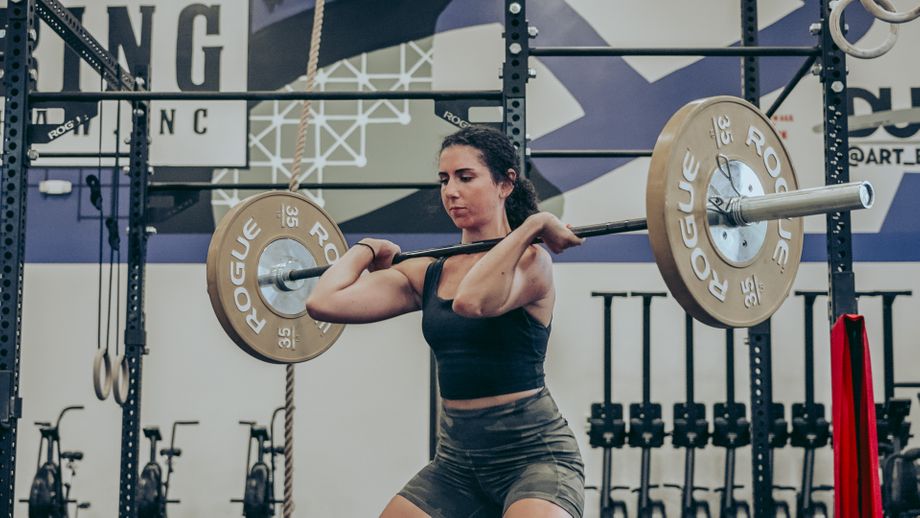
- Increased Energy: Pre-workout contains stimulants like caffeine that temporarily reduce fatigue and boosts energy levels.
- Improved Endurance: Many pre-workout supplements include ingredients that may help increase endurance, delay fatigue, and minimize perceived exertion during exercise.
- Enhanced Focus: Pre-workout formulas that contain caffeine and l-theanine may improve mental focus, alertness, vigilance, and overall cognition, leaving you more likely to stay on task during a workout.
- Improved Blood Flow: Ingredients like arginine and citrulline synthesize nitric oxide, which improves blood flow to your muscles. This results in more oxygen and nutrients reaching your muscles for better overall performance.
- Increased Strength: Pre-workout supplements that contain creatine or citrulline may increase strength and power output during exercise, allowing you to push through more repetitions.
Side Effects of Pre-Workout
Not all pre-workout supplements are created the same, and some may contain ingredients that could be harmful when taken in excess. Most are very high in caffeine, which everyone tolerates differently. Side effects of caffeine include difficulty sleeping, gastrointestinal distress, jitters or feelings of anxiety, dehydration, or headaches.
Exceeding more than 400 milligrams of ingested caffeine may result in a caffeine overdose, which could lead to serious medical complications like an irregular heartbeat or seizures.
Pre-workout may not be appropriate for those with certain medical conditions or those taking specific medications. As with any dietary supplement, always do your research, talk to your doctor, and follow the recommended dosage instructions to avoid potential negative side effects.
How Much Pre-Workout Should I Take?
Pre-workout isn’t something you want to take in excess. The recommended pre-workout dosage depends on the specific product ingredients. Always read the product label carefully and follow the recommended dosage instructions. Do not exceed one serving size of pre-workout in a single day.
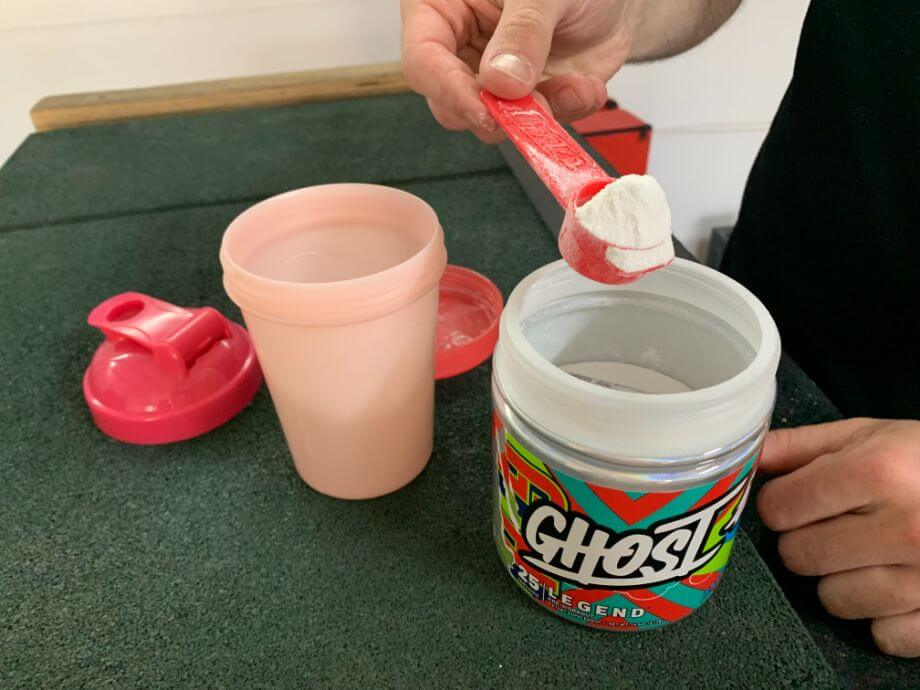
As a general guideline, many pre-workout supplements recommend taking one scoop (about 5-10 grams) mixed with 6-12 ounces of water about 30 minutes before a workout. You may want to start with half a scoop to assess your tolerance before gradually increasing to the full recommended dosage.
How Long Does Pre-Workout Last: Final Thoughts
Known for its ability to increase energy, optimize focus, and improve strength, pre-workout could give you a competitive edge to get ahead in your workouts. Pre-workouts are formulated with an array of ingredients, including stimulants, amino acids, and electrolytes intended to help you achieve more at the gym.
RELATED: Best Pre-Workout for Men
With countless pre-workout supplements containing various formulations, it’s difficult to pinpoint exactly how long pre-workout lasts. However, using what we know about a few common ingredients (caffeine, arginine, citrulline), it’s safe to say the effects of pre-workout will generally last between 30 minutes and 2 hours. This duration will vary depending on the recommended dosage, your body size, and personal tolerance levels.
- Caffeine kicks in 45-60 minutes following ingestion and could remain in your system for up to 10 hours.
- Arginine peaks in the bloodstream between 60-90 minutes after consumption and gradually loses its effects 30-120 minutes later, depending on the dosage.
- Citrulline malate has been shown to peak around 1 hour after ingestion and quickly declines 15-30 minutes later, regardless of the amount.
- Consider taking pre-workout around 30 minutes before your workout to feel its full effects.
- The effects of pre-workout will likely last between 30 minutes and 2 hours.
- Avoid taking more than the recommended product dosage to avoid harmful side effects.
How Long Does Pre-Workout Last: Q&A
How long do pre-workout side effects last?
The effects of a pre-workout are likely to last between 30 minutes and 2 hours. Dosage, body size, and tolerance levels all contribute to how long the effects of pre-workout will last, causing some people to feel them for longer than others.
How late is too late for pre-workout?
The caffeine in pre-workout may lead to insomnia or difficulty sleeping if taken too close to bedtime. It’s best not to take pre-workout supplements within 6 hours of your usual bedtime to avoid sleep disturbances.
Do you crash after pre-workout?
Some people could experience a “crash” after taking pre-workout supplements, especially if they contain high amounts of caffeine. You may feel fatigued when the effects of pre-workout wear off, however not everyone will experience this.
How do you wear off pre-workout effects?
You’ll most likely need to wait out the effects of pre-workout. However, drinking plenty of water will dilute the pre-workout in your system and could help lessen its effects.
These statements have not been evaluated by the Food and Drug Administration. This product is not intended to diagnose, treat, cure, or prevent any diseases.
References
- Temple JL, Bernard C, Lipshultz SE, Czachor JD, Westphal JA, Mestre MA. The Safety of Ingested Caffeine: A Comprehensive Review. Front Psychiatry. 2017;8:80. Published 2017 May 26. doi:10.3389/fpsyt.2017.00080
- Viribay A, Burgos J, Fernández-Landa J, Seco-Calvo J, Mielgo-Ayuso J. Effects of Arginine Supplementation on Athletic Performance Based on Energy Metabolism: A Systematic Review and Meta-Analysis. Nutrients. 2020;12(5):1300. Published 2020 May 2. doi:10.3390/nu12051300
- Gough LA, Sparks SA, McNaughton LR, et al. A critical review of citrulline malate supplementation and exercise performance. Eur J Appl Physiol. 2021;121(12):3283-3295. doi:10.1007/s00421-021-04774-6
- Guest NS, VanDusseldorp TA, Nelson MT, et al. International society of sports nutrition position stand: caffeine and exercise performance. J Int Soc Sports Nutr. 2021;18(1):1. Published 2021 Jan 2. doi:10.1186/s12970-020-00383-4
- Wax B, Kavazis AN, Weldon K, Sperlak J. Effects of supplemental citrulline malate ingestion during repeated bouts of lower-body exercise in advanced weightlifters. J Strength Cond Res. 2015;29(3):786-792. doi:10.1519/JSC.0000000000000670
- Pérez-Guisado J, Jakeman PM. Citrulline malate enhances athletic anaerobic performance and relieves muscle soreness. J Strength Cond Res. 2010;24(5):1215-1222. doi:10.1519/JSC.0b013e3181cb28e0
- Anas Sohail A, Ortiz F, Varghese T, et al. The Cognitive-Enhancing Outcomes of Caffeine and L-theanine: A Systematic Review. Cureus. 2021;13(12):e20828. Published 2021 Dec 30. doi:10.7759/cureus.20828
- Saunders B, Elliott-Sale K, Artioli GG, et al. β-alanine supplementation to improve exercise capacity and performance: a systematic review and meta-analysis. Br J Sports Med. 2017;51(8):658-669. doi:10.1136/bjsports-2016-096396
Wax B, Kerksick CM, Jagim AR, Mayo JJ, Lyons BC, Kreider RB. Creatine for Exercise and Sports Performance, with Recovery Considerations for Healthy Populations.Nutrients. 2021;13(6):1915. Published 2021 Jun 2. doi:10.3390/nu13061915


